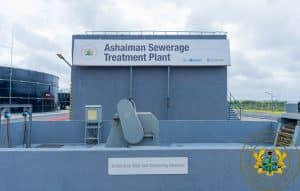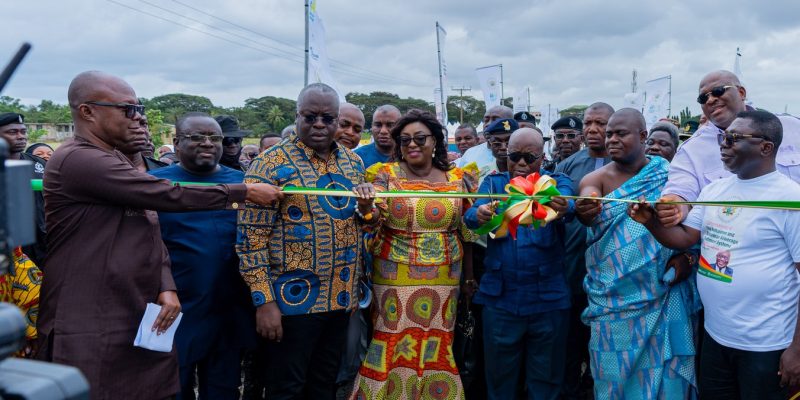In Ghana, President Nana Addo Dankwa Akufo-Addo has inaugurated two wastewater treatment plants in the towns of Ashaiman and Bankuman in the Greater Accra region. These plants will help to reduce the pollution of watercourses in this south-eastern region of the country.
Wastewater pollution levels are set to fall in Ghana’s Greater Accra region. This is now possible thanks to new wastewater treatment facilities inaugurated on 2 August 2023 by Ghanaian President Nana Addo Dankwa Akufo-Addo. The facilities inaugurated in the towns of Ashaiman and Bankuman include wastewater treatment plants.
The first plant, at Ashaiman, has a capacity of around 1,800 m3 per day. The treated effluent is returned to nature, protecting the health of 4,805 households that previously used water resources polluted by this wastewater. Aquatic biodiversity will also benefit.

Ashaiman Sewerage Treatment Plant in Ghana©State House Of Ghana
A 51 km network of sewers has also been built in Ashaiman to carry the wastewater to the new treatment plant.
Read Also – GHANA: Budapest lends €70m for the construction of 13 wastewater treatment plants
The second wastewater treatment plant, located in the town of Bankuman, has been brought back into service following rehabilitation and extension work. This other plant has a daily capacity of 1,600 m3, serving 3,100 households. The work as a whole required an investment of $6.6 million, or around 74 million Ghanaian cedis.
The government of Ghana says that the inauguration and re-commissioning of the Ashaiman and Bankuman wastewater treatment plants is part of the Greater Accra Metropolitan Area (GAMA) Water Supply and Sanitation Project. Conceived as one of the “pro-poor” interventions to guarantee the “One House, One Toilet” policy, this project implemented throughout the metropolitan region has enabled the construction of 48,641 improved domestic toilets serving 389,128 people since December 2020.
Inès Magoum








You must be logged in to post a comment.